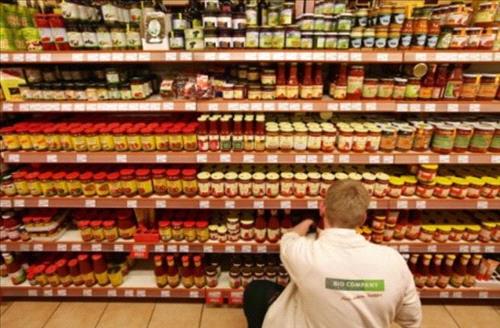Ammon News - (Jordan Times) - When it comes to food, consumers in Jordan prioritise quality in terms of taste and healthy nutrition, say marketing specialists at several food industries in the Kingdom.
“Tracking demand and receiving queries, it is very evident that local consumers look for healthy food as people are keen to be fit,” Osama Abulaila, assistant marketing manager at Al Nabil Co. for Food Products told The Jordan Times on Saturday.
He said Jordanians are changing their eating habits and lifestyle; many are emulating the Western culture, where quick meals are the norm these days because of families’ work load and the educational levels. Travelling abroad has reshaped living behaviour.
Abulaila stressed that household income and demography are important to determining where social segments shop.
Abulaila mentioned a monthly JD600 household income as a figure whereby consumers can exercise the choice of buying good-quality food.
He said consumers here prefer foreign products until they are assured of similar quality at competitive price, which may sway them to change. He added that Jordanians are not fully aware about quality specifications and standards of imported products, especially those from neighbouring markets.
“Not many Jordanians realise that more than 80 per cent of products manufactured in a neighbouring country are not subject to specifications,” he remarked.
Ali Atout, sales and marketing manager at Hammoudeh Food Industries, said prices are not so much a determining factor in buying products as the taste.
“Housewives dairy products according to the taste, in terms of acidity and density, with little attention to prices,” he said.
“Also, they are inclined to rely on the experience of others, through word of mouth,” he noted.
According to Atout, advertisements are not seen negatively by consumers, as they were perceived in the past when a promotion was viewed as an attempt to push through something that is not marketable.
Yet, people rarely bother to read specifications and essentials printed on packages.
“We conducted a study and found that consumers do not trust powder milk as a fresh product,” he said.
Ahmad Khudari, general manager of Adnan Khudari and Sons Trading Company, known commercially under the name Blue Mill, expressed hope that Jordanians would support and encourage locally made products.
“Our products are sold as far as the United States and Canada, but regrettably, Jordanians are not interested to find out nutritional facts as much as looking at prices and expiry dates,” he said.
He added: “Consumers here are totally in the dark because they do not care to read or believe the information printed on the packets, and are indifferent towards product specifications demanded locally and those required abroad.”
Khudari noted that Jordanian specifications require one-year validity, but people go for the same product from neighbouring countries because the validity is for two years.
According to him, many firms are relocating to Saudi Arabia where costs are much lower, especially energy prices.
He lamented the reluctance of the Jordanian authorities to provide incentives to local industries, concentrating, instead, on collecting revenues for the State Treasury.
Ahed Deeb, sales and marketing manager at the Danish Jordanian Dairy Company known under the commercial name of Baladna, said awareness is high among Jordanians, and constantly rising, about healthy and nutritious food.
“I can assure you that 70 per cent of the people are conscious about their eating behaviour and the quality of food, although that there are still few segments of the society that give more attention to prices,” he said.
Deeb added: “Over the past 10 years, the number of those looking for diet products has gone up by at least 100 per cent.”
He said consumers now hesitate to buy food products that are on special offers, out of concern that attractive prices mask some defects or at least an approaching expiry date.
He noted that some consumers also prefer reading the English version of instructions and information printed on the packs and containers.
Deeb stressed the importance of advertising to keep reminding consumers about the brand, because the competition is strong, especially from neighbouring markets.
The Baladna manager admitted that Arab Gulf producers have an advantage in terms of the advanced technological equipment they utilise and low costs, but stressed that Jordanians have the upper hand when it comes to quality products, as local specifications are often on par with international standards.
“Arab Gulf companies sell products in Jordan at prices below production costs to gain a place in the local market, but we try to counter the price factor with indirect promotion,” Deeb said.
He mentioned as examples offers of display refrigerators with the brand name to supermarkets and invitations to schools and organisations to send their students and staff to visit their factory and witness the production process.
A lady shopping at a supermarket asked her companion what kind of tomato paste she should buy. A person nearby overheard the question and replied: “Go for any foreign type except the local made.”
This might some shoppers’ mindset that local manufacturers have to work hard to change.
